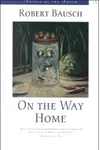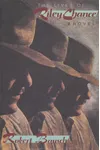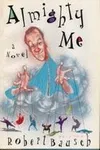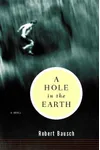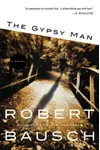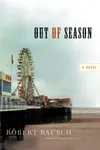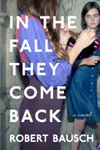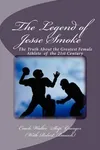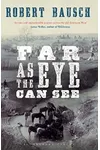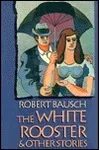Picture a storyteller who spun tales of family, heartbreak, and the wild American West with a pen as sharp as a Virginia sunrise—meet Robert Bausch! This American novelist, born in the shadow of World War II, crafted nine novels and a short story collection that dive deep into the human condition. With works like A Hole in the Earth earning New York Times and Washington Post accolades, Bausch’s stories resonate with readers who crave raw emotion and unforgettable characters.
But Bausch wasn’t just a writer—he was a teacher, a mentor, and a master of weaving life’s complexities into prose. From his classroom at Northern Virginia Community College to the pages of his novels, he left a legacy that’s as vibrant as the stories he told. Ready to discover the man behind the magic? Let’s dive in!
The Making of Robert Bausch
Born on April 18, 1945, in Fort Benning, Georgia, Robert Bausch grew up in a tight-knit Catholic family with an identical twin, Richard Bausch, who also became a celebrated novelist. Raised near Washington, D.C., Bausch’s early life was shaped by storytelling and a love for Civil War history—he devoured books by authors like Shelby Foote and Douglas Southall Freeman. After serving in the U.S. Air Force and working odd jobs like taxi driver and salesman, he earned a BA, MA, and MFA from George Mason University. His writing career kicked off with his debut novel, On the Way Home, in 1982, a poignant tale of a Vietnam vet’s return that set the tone for his soul-stirring style.
Robert Bausch’s Unforgettable Stories
Bausch’s novels and stories are like a family reunion—messy, heartfelt, and impossible to forget. His work often explores the fragile ties of family and the chaos of unexpected events. A Hole in the Earth (2000), inspired by his father, follows Henry Porter, a gambler grappling with domestic crises and his own immaturity. Critics praised its depth, naming it a New York Times Notable Book and a Washington Post Favorite. Far as the Eye Can See (2014) is a sweeping Western that trails Bobby Hale, a Civil War veteran navigating love and survival in the brutal frontier—it’s a gritty, character-driven epic.
The White Rooster and Other Stories (1995), a short story collection, won the Dictionary of Literary Biography Award for its vivid portraits of human connection in an alienating world. Then there’s Almighty Me! (1991), a wickedly funny satire about a car salesman granted God’s powers for a year—think divine comedy with a side of heartbreak. Bausch’s style blends humor, tragedy, and a knack for making the ordinary feel profound, earning him comparisons to Mark Twain and Cormac McCarthy.
His final novel, The Legend of Jesse Smoke (2016), imagines a female NFL quarterback, blending sports drama with sharp social commentary. Whether writing about Virginia towns or Montana plains, Bausch’s voice is unflinchingly honest, pulling readers into worlds where love and loss collide.
Why Robert Bausch Matters
Robert Bausch’s impact stretches beyond his books. As a professor at Northern Virginia Community College and universities like Johns Hopkins and UVA, he shaped countless writers with his belief that writing could be taught—and learned—with passion. His 2013 Outstanding Faculty Award and 2009 John Dos Passos Prize for Literature reflect his influence as both educator and author. Bausch’s stories, rooted in universal themes of family and resilience, continue to inspire readers and writers to explore the messy beauty of human relationships.
His death in 2018 from multiple myeloma left a void, but his work lives on, celebrated for its empathy and insight. From literary journals to classroom discussions, Bausch’s legacy is a reminder that great stories can change how we see the world.
- Born: April 18, 1945, Fort Benning, Georgia
- Key Works: A Hole in the Earth, Far as the Eye Can See, The White Rooster
- Awards: John Dos Passos Prize (2009), Dictionary of Literary Biography Awards (1995, 2002)
- Died: October 9, 2018
Snag Far as the Eye Can See or A Hole in the Earth and dive into Robert Bausch’s heartfelt, gripping world of American storytelling!
